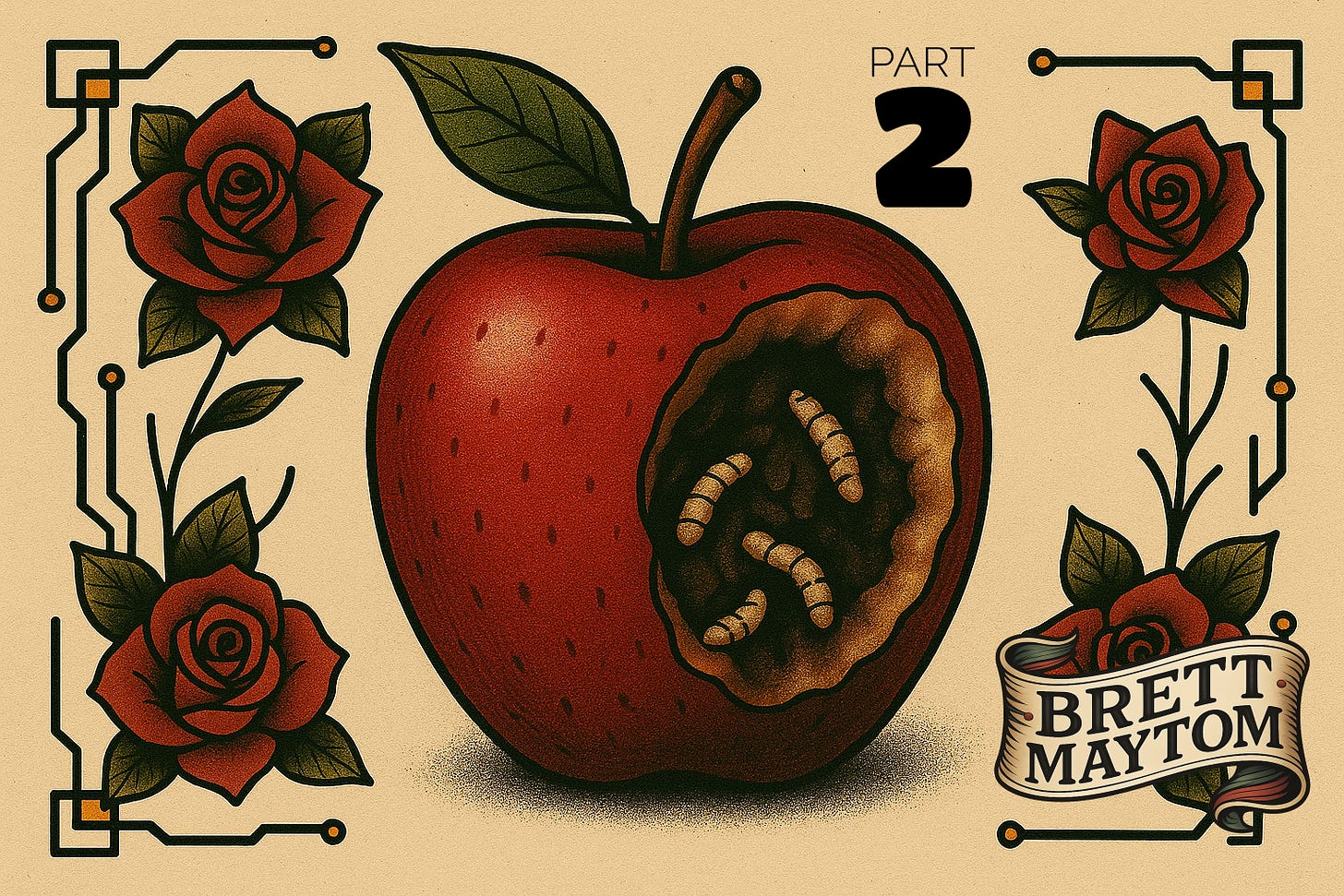Rotten Agile: Part 2 – No Standard, No Safety
Without shared standards, trust collapses. And without trust, no profession can survive
Unlike mature professions, the agile marketplace remains unregulated. There is no governing body or licensing authority comparable to bar associations for lawyers or medical boards for doctors. This means anyone can claim to be agile. While this openness encourages innovation, it also allows unskilled or unethical practitioners to cause harm, eroding trust and safety for clients.
Community-led efforts to address this are still in their infancy. Groups like the Agile Alliance have begun drafting voluntary codes of ethics. But adoption is scattered, and there is no enforcement mechanism to remove bad actors.
Unfortunately, this is by design or rather, a lack of design. It started with good intentions, hoping people would follow values and principles. But in a commercial, dog-eat-dog world, the opposite happens, and those good intentions are lost. There was no protection built in at the beginning, and it allowed exploitation to occur.
Without oversight, protection mechanisms, quality control is left to market forces and personal reputation. Anyone can present themselves as an expert, armed with little more than jargon. The burden falls on hiring organisations to assess credibility, and they are not doing a good job of that either.
As for consumers, anyone can claim to be “Agile”, as there are no standards and it can mean anything to anyone. No one is being held to account for that. At its core, the market model erodes credibility, destroys trust and encourages exploitation.
There are no fixed entry requirements or standard benchmarks. Take Scrum, for example. There is Scrum.org, Scrum Alliance, and Scrum Inc. But then there are others that leverage the brand, like ScrumStudy, SAFe, and PMI (formerly DA). This fragmented landscape adds to the inconsistency. Each has its own definition of what Scrum is, and each runs its own self-governed certification programs that compete with one another. I will discuss the certification-mill in another post.
Without a regulatory body, there is no common understanding. There is no standard. There is no accountability. There is no ownership. The result is variability and opportunism.
Organisations have taken notice. Several are walking away from agile altogether, as they are not getting the guaranteed “certified” expertise they need. They are not getting a return on what they were promised. When business leaders look at agile, they see a marketplace full of infighting, bad-mouthing, and inconsistency. Any sensible business person will look at that and think, “not for my business, no thank you.”
This fragmentation has increased ambiguity, where critical concepts are ignored or completely altered. It leads to differences of opinion, which causes fortification and conflict, resulting in unprofessional behaviour. This fragmentation has heavily contributed to the agile warzone, agile tribalism and dogma.
This reflects a broader crisis of confidence, rooted in the profession’s lack of formal accountability. People struggle with the idea of accountability, as there are far too many opinions about what that accountability should or should not be.
The agile market lacks oversight, governance, and an authoritative body to maintain standards. The market lacks ownership and accountability. The market lacks integrity. There is no credibility in the market.
Can this be fixed? No. You will not get organisations like Scrum.org, Scrum Inc., Scrum Alliance, and ScrumStudy to establish a shared, independent, and neutral standards body. Their businesses are coupled to a certification mill, which is about driving sales, training and leveraging on the word “certification”. Sadly this model is not a real certification model, its a marketing mill.
Agile will eventually crash and burn. I would rather learn from the past and fix the wrongs. The Agile marketplace needs to end and a new professional market emerge that is not associated with a tarnished brand.
Practiqual™ is a clean reset. It does not join the noise. It steps away from turf wars, personality cults and commercial empire-building. Instead, it offers a fresh foundation. One built on integrity, clarity and shared professional standards.
Practiqual™ introduces a code of practice that the profession values and upholds. Not because it is imposed, but because it is built together and reinforced by shared accountability. But in a world where bad actors exist, good intent is not enough.
That is why an independent, neutral body will be established to safeguard what the community builds. This body, the International Practiqual Accreditation Authority™ (IPAA), will not sell training, consult or compete commercially. It does not promote particular content or prescribe specific methods. Instead, it focuses on making sure the standards process is fair, transparent and respected.
The IPAA protects everyone involved. It helps preserve public trust, respects trade secrets and supports the secure development of ideas. Its role is to uphold the integrity of the system. Not to shape its direction. Independence is not optional. It is structural.
Are you over the agile circus too?
I’m gathering voices who want to step off the merry-go-round. If that’s you, comment below or message me privately. Let’s talk about what’s next as I am in startup phase.
Series posts
Read other posts in this series

